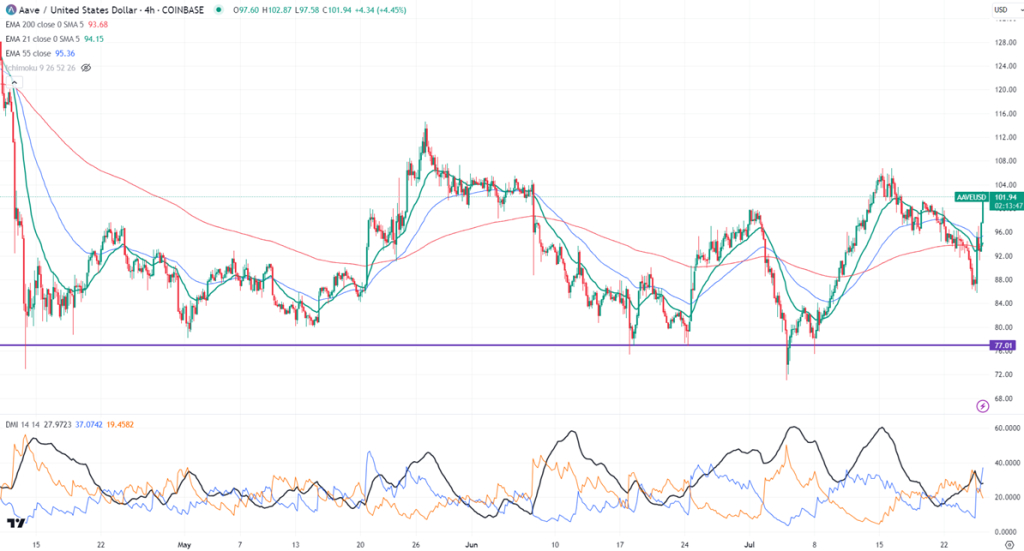The birth of the Aave Protocol marks Aave's shift from a decentralized P2P lending strategy (direct loan relationship between lenders and borrowers, like in ETHLend) to a pool-based strategy. Lenders provide liquidity by depositing cryptocurrencies in a pool contract.
The interest rate for both borrowers and lenders is decided algorithmically:
For borrowers, it depends on the cost of money - the amount of funds available in the pool at a specific time.
As funds are borrowed from the pool, the amount of funds available decreases which raises the interest rate.
At the heart of a lending pool is the concept of reserve: every pool holds reserves in multiple currencies, with the total amount in Ethereum dened as total liquidity. A reserve accepts deposits from lenders. Every reserve has a specic Loan-To-Value (LTV), calculated as the weighted average of the different LTVs of the currencies composing the collateral, where the weight for each LTV is the equivalent amount of the
collateral in ETH;
Every reserve has a specific Loan-To-Value (LTV), calculated as the weighted average of the different LTVs of the currencies composing the collateral, where the weight for each LTV is the equivalent amount of the collateral in ETH.
Lending Pool core-
The LendingPoolCore contract is the center of the protocol, it holds the state of every reserve and all the assets deposited,
It handles the basic logic (cumulation of the indexes, calculation of the interest rates...).
The Aave protocol implements a tokenization strategy for liquidity providers. Upon deposit, the depositor receives a corresponding amount of derivative tokens, called Aave Tokens.
Aave protocol's two major innovations are
Stable rate- It helps borrowers' financial planning
Flash Loan rate- to borrow without collateral during a single transaction.
AAVEUSD surged more than 20% in the past two days. It holds above the short-term (21 and 55 EMA) and above the long-term moving average. It hit a high of $102.87 and is currently trading around $102.56.
The bullish invalidation can happen if the pair closes below $70. On the lower side, the near-term support is $95. Any break below targets $90/$85. Any breach below $85 targets $70.
The pair's near-term resistance is around $115. Any breach above confirms minor bullishness. A jump to $130/$150 is possible. A surge past $155 will take it to $200.
.
It is good to buy on dips around $85 with SL around $70 for TP of $125/$150.

























Comment 0